 Biology
Biology

KQED News
U.S. Gets Middling Marks On 2014 'State Of Birds' Report Card
All is not well with the nation's birds. The most comprehensive study ever of birds in America is out today, and it says many populations are in steep decline, even as others are doing well. The report, called "The State of the Birds," comes from the federal government, universities and ...Read More
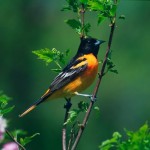
KQED News
More Than Half of U.S. Bird Species Threatened by Climate Change
People in Maryland love their Baltimore orioles — so much so that their major league baseball team bears the name of the migrating bird. Yet, by 2080, there may not be any orioles left in Maryland. They migrate each year and, according to a new report, could soon be forced ...Read More

KQED Science
Fixing a Gene in a Fertilized Egg Prevents Muscular Dystrophy (in a Mouse)
Scientists recently fixed a broken gene in a fertilized mouse egg and prevented the mouse from getting an ultimately fatal form of muscular dystrophy. This study may one day translate into gene therapies that will treat and maybe even reverse certain effects of the disease.

KQED Science
West Coast Fish Upgraded to Sustainable Seafood Choice
One of the key fisheries on the West Coast is coming back after years of decline.

KQED Science
Pretty but Prickly: the Defenses of California Plants
Discover the beauty of sharpness and learn how to tell the difference between thorns, spines, and prickles.

KQED Science
The First Annual World Shorebirds Day Kicks off on September 6
Shorebird populations worldwide are declining, and endangered birds like the spoonbill sandpiper are facing extinction in the next five years. Learn about shorebirds who migrate to San Francisco Bay during winter months and how you can join the first annual "World Shorebirds Day" celebration.
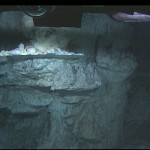
KQED Science
A Glimpse of LUCA, Life’s Last Universal Common Ancestor
A new study suggests how early life might have survived without some of the cellular machinery that is absolutely required for life today. Turns out that having a fairly leaky membrane may have been the key.

KQED Science
San Francisco Wants to Know: Is Your Living Room Window Killing Migratory Birds?
Between 100 million and one billion birds die each year from colliding with glass windows of commercial or residential buildings. San Francisco is launching a program to track the damage caused by windows in homes.
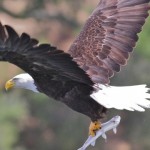
KQED Science
A Family of Bald Eagles Grows in Castro Valley
Iconic bald eagles are capturing our hearts through nest webcams that showcase their family dramas online. Learn more about a local eagle family that fledged not one, but two young eagles this year at Lake Chabot Regional Park.
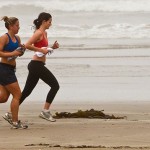
KQED Science
Some of Us May Have a Genetic Predisposition to Disliking Exercise
About 90% of us over the age of 12 fail to get as much exercise as we should. This is almost certainly not because we don’t believe in those benefits. Instead, it looks like at least part of the reason may be that some of us are genetically programmed to hate exercise.

KQED Science
Stanford Scientists Use Fruit Flies to Study Diabetes
Stanford researchers have developed a new way to use fruit flies to sort through the complicated genetics of Type 2 diabetes.

KQED Science
There’s a New Bird Species in California, Sort Of
When is a clapper rail not a clapper rail? Answer: when it's in California, as it turns out.
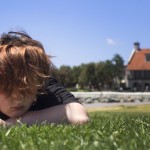
KQED Science
What Is Schizophrenia? Scientists Call for New Thinking
For two generations, psychiatrists have treated schizophrenia by medicating its most obvious symptoms: delusions and hallucinations. Were they wrong?
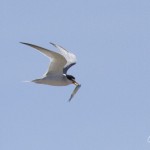
KQED Science
A Tale of Two Tern Towns in the Bay Area
The Bay Area hosts two large breeding colonies of endangered California least terns. Find out more about these birds and the East Bay Regional Park District's efforts to manage their populations.
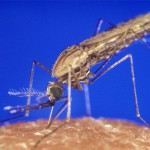
KQED Science
Genetically Engineering Wild Populations Could Be Just Around the Corner
We might be able to use selfish genes to cause the population of mosquitoes that carry malaria to crash. Is genetically manipulating these insects out in the wild worth preventing hundreds of millions of people from getting malaria?

KQED Science
A Quest for Vegan Cheese That Actually Tastes Like Cheese
A team of Bay Area scientists is biohacking baker's yeast, in an effort to produce proteins that are just like milk proteins, only they're aren't from milk.

KQED Science
Present-Day Tibetans Inherited Genetic Gifts from Paleolithic-Era Ancestors
The world had been awash in news about how we can see the evidence in our DNA of ancient humans mating with Neanderthals and their close relatives, the Denisovans. Now in a new study out in the journal Nature, a group of researchers has found the strongest evidence to date that this mating mattered.

KQED Science
Inspectors at Lake Tahoe Intercept Invasive Mussels
Mandatory boat inspections stop invasive species from endangering Lake Tahoe’s pristine ecosystem.

KQED Science
Communicating Science Through an Artistic Lens at Stanford
Stanford scientist Sue McConnell will receive $1 million over the next five years to sustain a program that teaches biology seniors to communicate science to the public through art.







